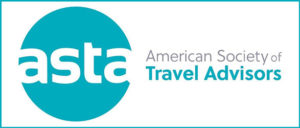Exploring Offshore Casinos with Payment Methods
Understanding Offshore Casinos
Offshore casinos are online gambling platforms that operate under licences from jurisdictions outside the country where the player resides. For UK players, this typically means sites regulated by authorities in Curacao, Malta, Gibraltar, or the Isle of Man. These platforms often offer more flexible services, a wider variety of games, and alternative payment methods compared to UK-licensed sites.
Despite not being licensed by the UK Gambling Commission, offshore casinos remain accessible to British players. However, the onus lies on the user to ensure the platform is safe and legitimate. Many Offshore Casino cater specifically to UK players, offering GBP accounts, English customer support, and country-specific promotions.
What Defines an Offshore Casino?
An offshore casino is one that is registered and licensed in a foreign jurisdiction, typically in regions with favourable tax and regulatory environments. These include countries like Costa Rica, Panama, and Antigua and Barbuda. Such casinos serve international markets and are not bound by the UK’s strict advertising and operational rules.
Key traits include offering global access, multiple currencies, and support for international payment methods. They often promote higher bonuses and less restrictive gameplay rules, which is why many seasoned gamblers explore these options despite the risks.
Legal Standing of Offshore Casinos in the UK
Offshore casinos are not illegal for UK players to access; however, they are not regulated by the UK Gambling Commission. This means that player protections are limited and dispute resolution may be more challenging. Users are essentially operating outside the bounds of UK gambling law.
While the UK government does not prosecute individuals for using offshore sites, it warns that doing so may expose users to higher risks, including lack of financial recourse in cases of fraud or operational failure.
Advantages and Disadvantages of Using Offshore Casinos
Advantages include wider game selections, innovative bonus schemes, and diverse payment methods including cryptocurrencies. Offshore sites also tend to offer fewer restrictions on bet limits and game types, appealing to high-stakes players.
However, disadvantages include limited legal protection, potential for delayed or withheld withdrawals, and the risk of encountering unlicensed or scam operations. According to the UKGC, over 15% of complaints related to gambling in 2024 were linked to offshore platforms.
Licensing and Regulation
Understanding licensing is critical when assessing the credibility of offshore casinos. Trusted regulators enforce fair play standards and hold operators accountable, while weak or nonexistent oversight can leave players vulnerable.
Before depositing any funds, players should verify the casino's licence number and regulator. Legitimate platforms display this information clearly and link to verification portals.
Key Regulatory Authorities Worldwide
- Malta Gaming Authority (MGA)
- Curacao eGaming
- Gibraltar Regulatory Authority
- Isle of Man Gambling Supervision Commission
- Kahnawake Gaming Commission
These bodies differ in their strictness and transparency. For example, MGA is considered a high-tier regulator, known for player protections and audit requirements, while Curacao’s oversight is generally looser.
Verifying the Legitimacy of Offshore Operators
Players should always check for a licence number and verify it through the regulator’s website. Reviews and audit certificates from independent agencies like eCOGRA can also help determine a casino’s legitimacy.
Additionally, user feedback on platforms like Trustpilot and Reddit can provide real-world insights into a casino’s reputation and payout history.
What Licensing Means for Player Protection
A valid licence implies that the casino adheres to certain standards regarding fair games, responsible gambling, and fund security. It also provides avenues for dispute resolution through the licensing body.
Unlicensed casinos can disappear overnight, taking player funds with them. In contrast, licensed operators are obligated to separate user funds from operational capital, reducing the risk of loss in case of insolvency.
Popular Payment Methods at Offshore Casinos
Offshore casinos tend to offer a broad array of payment options, catering to international users with diverse preferences. These include traditional banking, digital wallets, and cryptocurrencies.
The availability of each method depends on the user’s country and the casino's payment processor partnerships. Here’s a breakdown of common choices:
Traditional Options: Credit/Debit Cards & Bank Transfers
Visa and Mastercard remain widely accepted, offering convenience and familiarity. Bank transfers are often used for large withdrawals but may take 3–7 business days.
However, many UK banks block gambling transactions to offshore entities. As a result, acceptance rates can be as low as 50% depending on the bank and card type.
E-Wallets: PayPal, Skrill, and Neteller
These services are fast, private, and widely supported. Skrill and Neteller are favourites among casino users due to instant deposits and withdrawals within 24 hours.
Note that some bonuses may be restricted for deposits made via e-wallets. Also, fees can range from 1.5% to 3% per transaction depending on the provider.
Cryptocurrencies: Bitcoin, Ethereum and Others
Crypto has grown in popularity due to anonymity and low fees. Bitcoin and Ethereum are the most commonly accepted, but others like Litecoin and Tether are gaining ground.
Transactions are usually processed within minutes and incur minimal costs. In 2024, over 35% of offshore casino deposits were made via cryptocurrency, up from 22% in 2022.
Payment Method Comparison
Different methods offer varying degrees of speed, security, and cost. Choosing the right one can enhance your gaming experience and protect your funds.
The table below summarises key differences:
| Method | Deposit Speed | Withdrawal Speed | Fees | Anonymity |
|---|---|---|---|---|
| Credit/Debit Card | Instant | 2–5 days | Low | No |
| E-Wallets | Instant | Within 24 hrs | 1–3% | Partial |
| Crypto | 10–30 mins | Same day | Minimal | High |
| Bank Transfer | 1–3 days | 3–7 days | £10–£30 | No |
Speed of Deposits and Withdrawals
Speed is crucial for many players. E-wallets and crypto offer near-instant transactions, ideal for users seeking quick access to funds. Traditional methods lag behind, especially for withdrawals.
Choose platforms that process payments quickly; for instance, BitStarz and Stake.com often complete withdrawals within an hour for verified users.
Security and Anonymity
Crypto excels in user privacy, while cards and banks offer better consumer protections. E-wallets strike a middle ground, offering decent anonymity and strong encryption protocols.
Always enable two-factor authentication and use separate wallets for casino activity to reduce risk.
Fees and Transaction Limits
Most e-wallets and bank transfers include fees. Cryptocurrencies usually have the lowest cost structure, especially for international players. However, conversion and volatility can affect actual value.
Check the casino’s FAQ or banking page for details, as limits can range from £10 to £100,000 depending on the method and account verification level.
How to Choose the Right Payment Method
Personal needs vary. High-rollers might prefer bank wires or crypto for large transactions, while casual users might opt for PayPal due to ease and security.
Match your method with your gaming habits. If you withdraw often, speed matters. If you prioritise privacy, crypto or prepaid vouchers may be better.
Considerations Based on User Preferences
Think about transaction speed, privacy, ease of use, and costs. Users wary of sharing financial details may prefer e-wallets or cryptocurrencies. Those seeking chargeback options might lean towards card payments.
Age and tech savviness also matter. Younger users are more comfortable with digital wallets and blockchain, while older players may prefer traditional methods.
Availability by Casino and Country
Not all methods are available everywhere. UK users might find that PayPal is restricted to certain licensed casinos, while crypto is more prevalent on offshore platforms.
Check the casino’s payment section and ensure it supports GBP to avoid currency conversion fees.
Balancing Convenience and Privacy
Many users sacrifice some convenience for increased anonymity. For instance, crypto users must manage wallets but enjoy near-complete privacy.
Conversely, using debit cards is simple but links gambling activity to your bank, which may have financial implications.
Risks Associated with Offshore Casinos
Playing on offshore sites involves inherent risks, particularly around legality and fund security. Always perform due diligence before depositing money.
Offshore casinos can operate without robust player protection rules, increasing the risk of fraud and unresolved disputes.
Legal and Financial Risks
Using non-UK licensed casinos could breach bank policies and affect your financial reputation. Your funds may not be protected, and you might face issues in recovering losses.
In 2023, over 2,000 complaints were lodged with the UKGC about unregulated casinos, most concerning delayed withdrawals and ambiguous terms.
Fraud and Scam Prevention Tips
Only use verified casinos with proper licensing. Avoid platforms with vague contact information, inconsistent T&Cs, or aggressive bonus schemes.
- Look for HTTPS encryption
- Verify user reviews and regulatory credentials
- Use payment methods with buyer protection when possible
Dispute Resolution Challenges
Offshore casinos may not honour withdrawal requests or address disputes. Without UKGC oversight, you have fewer options for resolution.
Check if the platform is part of any Alternative Dispute Resolution (ADR) scheme, like IBAS or eCOGRA, before registering.
Bonuses and Promotions Linked to Payment Methods
Offshore casinos frequently offer deposit bonuses and cashback deals that vary by payment method. These can boost value but may come with restrictions.
Some methods are excluded from bonuses entirely, especially certain e-wallets. Always read the terms before committing.
Payment-Specific Bonus Offers
- Crypto: 100–150% deposit bonuses, often with lower wagering
- Bank transfers: Higher deposit match but longer release times
- Skrill/Neteller: Usually excluded from welcome bonuses
Stake.com and 1xBit regularly provide crypto-exclusive promotions with low rollover requirements.
Wagering Requirements and Restrictions
Bonuses may carry 30x–50x wagering, depending on the method. Some impose caps on winnings or restrict certain games.
Always calculate your playthrough potential before accepting a bonus. £100 bonus at 35x wagering equals £3,500 in required bets.
Cashback and VIP Schemes
High-value users benefit from loyalty schemes offering cashback, free spins, and exclusive promotions. These are often tiered based on deposit methods and volume.
Example: Bitcasino offers up to 10% cashback weekly for Bitcoin users in its VIP program.
User Experience and Customer Support
Even with great games and bonuses, poor support can ruin the experience. Choose casinos with 24/7 multilingual assistance.
Mobile responsiveness, app availability, and site speed also matter greatly for UK users who often game on the go.
Accessibility of Sites and Apps
Top offshore sites like Stake and BetOnline offer responsive mobile platforms. Android and iOS apps are becoming standard, improving usability.
Ensure your preferred casino has a user-friendly interface, quick navigation, and game filtering tools.
Responsiveness of Support Channels
Live chat should respond within 2 minutes. Email replies should take no more than 24 hours. Verify this by testing pre-registration.
Sites like FortuneJack and Cloudbet consistently rate high for live chat efficiency among UK users.
Payment Support and Dispute Handling
Good casinos offer dedicated payment help desks. Look for detailed FAQs, live status on withdrawals, and transparent T&C updates.
Disputes should be logged and trackable. Support agents must be trained in finance-specific queries, not just gameplay issues.
Responsible Gambling at Offshore Casinos
Ethical offshore casinos support responsible gambling with tools and resources. Players must self-regulate and use limits to avoid financial harm.
Seek platforms that support reality checks, deposit caps, and time-outs even if they’re not UK-regulated.
Tools and Limits Available
Common features include daily deposit limits, session timers, and self-exclusion options. These tools can be activated via account settings or customer service.
Sites like Stake and FortuneJack allow players to set weekly limits directly from their dashboards.
Offshore Support Resources
GamCare and BeGambleAware remain accessible to UK users regardless of where they gamble. Forums like Gambling Therapy also offer international support.
Ensure your casino provides links to these services and includes them in their responsible gaming policy.
Signs of Gambling Addiction
- Spending more time or money than planned
- Chasing losses or hiding gambling activity
- Borrowing to gamble or neglecting personal obligations
If you notice any of these signs, seek help immediately through the above resources or NHS addiction services.
Future Trends in Offshore Casino Payments
As fintech evolves, new tools are shaping how offshore casinos operate. Players can expect more integrated and secure payment ecosystems.
From mobile-first banking apps to blockchain-based smart contracts, innovations are enhancing transparency and user control.
Innovations in FinTech and Gambling
Open banking APIs allow for faster KYC and direct bank transfers. AI-driven fraud detection helps platforms identify suspicious transactions in real-time.
Wallet integrations (like Apple Pay and Google Pay) are also expanding, simplifying transactions for mobile users.
Regulation Developments and Their Impact
More jurisdictions are updating laws to govern offshore operators. The UK may soon tighten restrictions on banks processing payments to unlicensed casinos.
Compliance costs may rise, prompting platforms to adopt stricter self-regulation and transparency standards.
Growing Role of Crypto and Blockchain
Crypto use is expected to reach 50% of all offshore casino transactions by 2026. Blockchain ensures provably fair gaming and immutable transaction logs.
Smart contracts could automate payouts and dispute resolution, reducing fraud and enhancing trust across the ecosystem.
Adventure’s Exclusive
Adventure Myanmar Tours & Incentives
#27, InyaMyaing St, BahanTsp 11201, Yangon, Myanmar.
Tel: +951-502901~5, 505103.
Mobile: +95-9977922123, 9977922124(24Hr)
Fax: +951-502906~7
www.adventuremyanmar.com
Adventure Cambodia Tours & Incentives
#200,Salakanseng Village, Svay dang Kum Commune, Siem Reap, Kingdom of Cambodia.
+855-63-966090,+855-92-572455
+855-64-966090
Terms and Conditions
All reservations and bookings must be made directly to ...
We accept payment by

We are Member of :


![]()

 Переводчик
Переводчик




